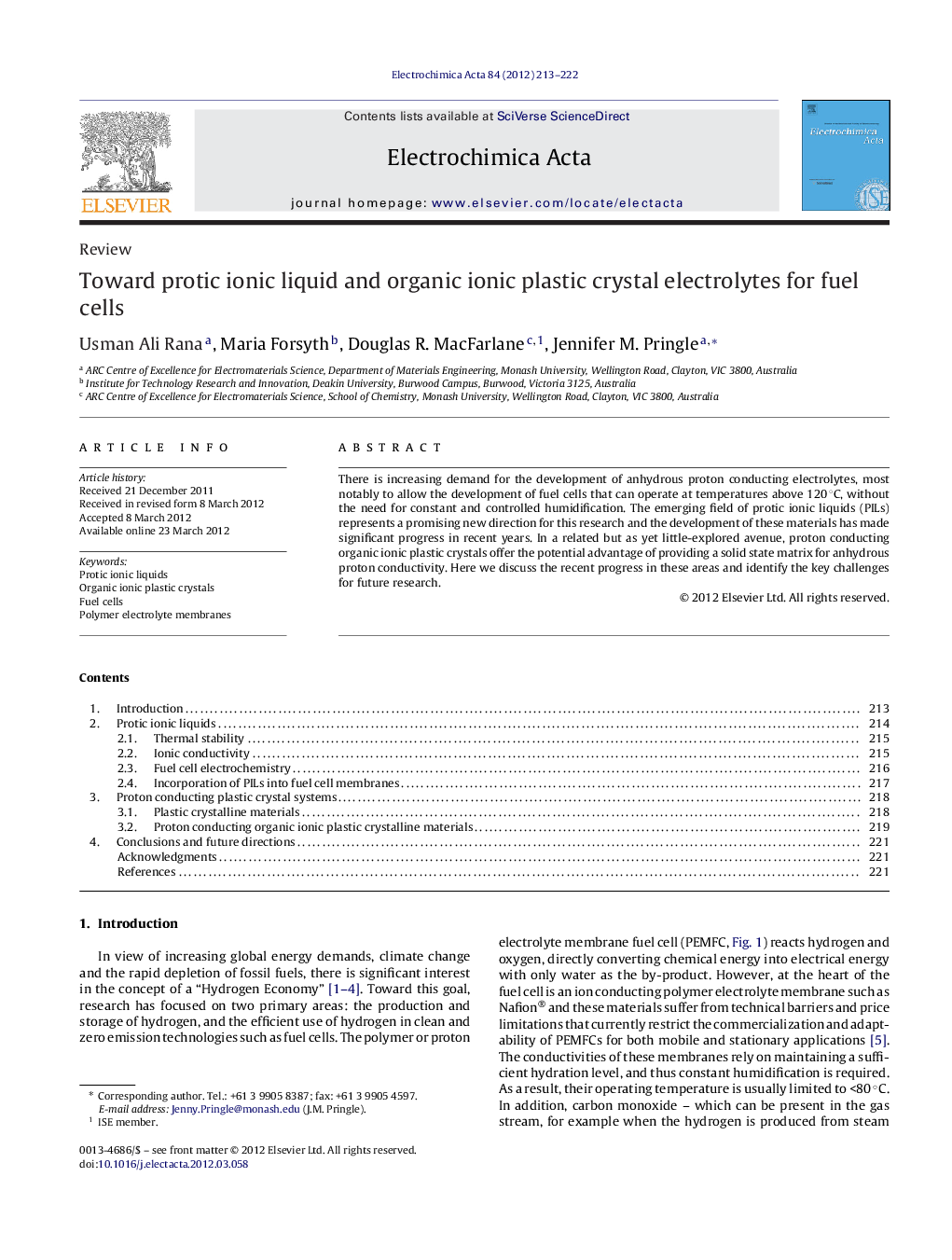| Article ID | Journal | Published Year | Pages | File Type |
|---|---|---|---|---|
| 187947 | Electrochimica Acta | 2012 | 10 Pages |
There is increasing demand for the development of anhydrous proton conducting electrolytes, most notably to allow the development of fuel cells that can operate at temperatures above 120 °C, without the need for constant and controlled humidification. The emerging field of protic ionic liquids (PILs) represents a promising new direction for this research and the development of these materials has made significant progress in recent years. In a related but as yet little-explored avenue, proton conducting organic ionic plastic crystals offer the potential advantage of providing a solid state matrix for anhydrous proton conductivity. Here we discuss the recent progress in these areas and identify the key challenges for future research.
Graphical abstractFigure optionsDownload full-size imageDownload as PowerPoint slideHighlights► Polymer electrolyte membrane fuel cells that can operate above 120 °C, without humidification, would be much more commercially viable. ► Protic ionic liquids and organic ionic plastic crystals are showing increasing promise as anhydrous proton conductors in fuel cells. ► Here we review the recent progress in these two areas.
